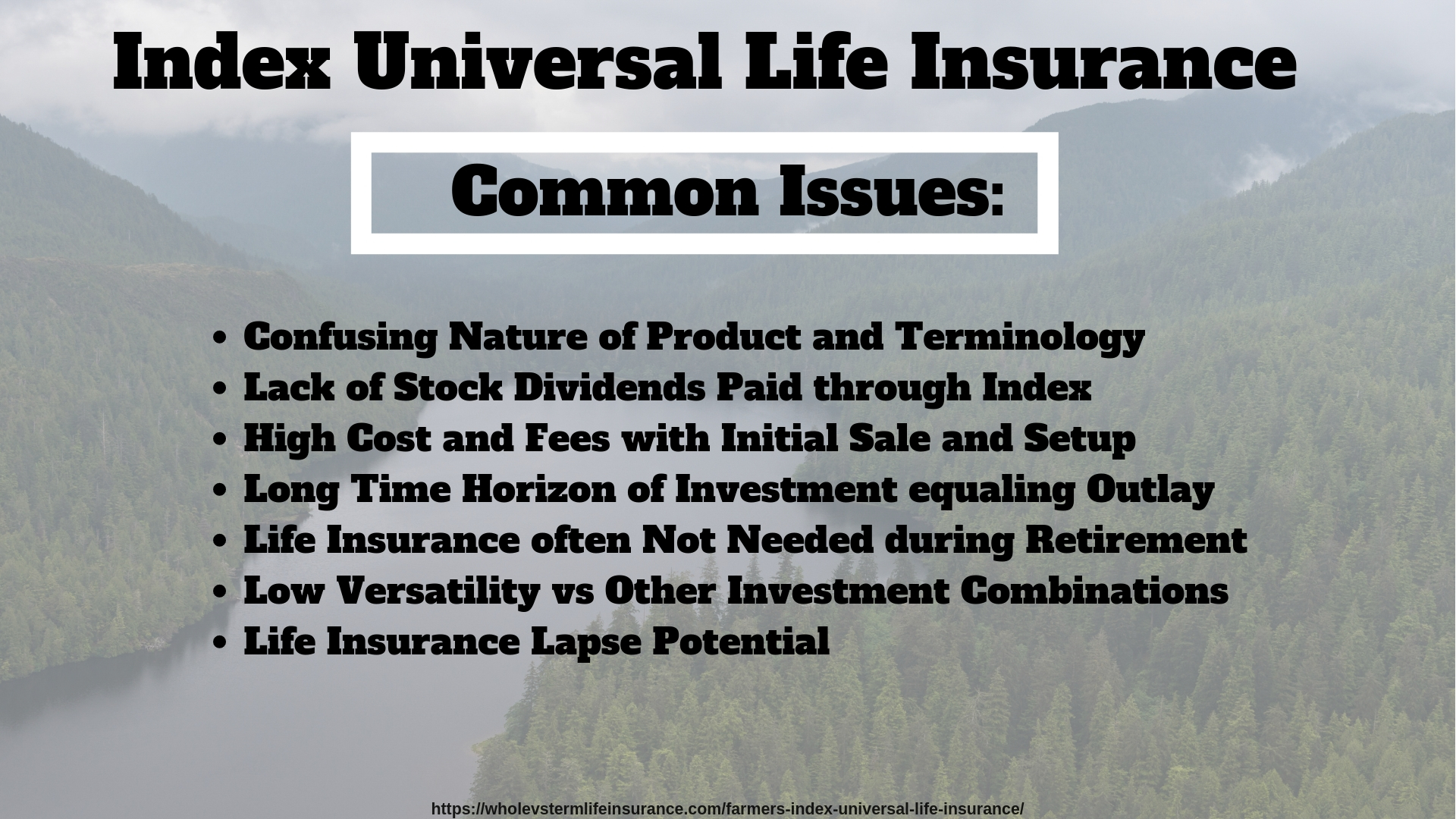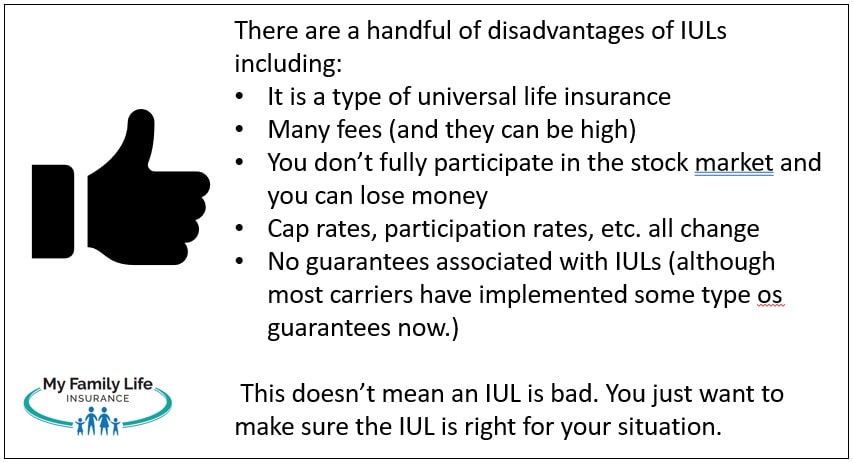All Categories
Featured
Table of Contents
Indexed Universal Life (IUL) insurance is a type of long-term life insurance coverage policy that incorporates the functions of conventional global life insurance policy with the possibility for money value growth linked to the efficiency of a stock exchange index, such as the S&P 500 (Indexed Universal Life). Like other forms of permanent life insurance, IUL offers a survivor benefit that pays out to the beneficiaries when the insured dies
Cash worth build-up: A portion of the premium payments enters into a cash money value account, which earns passion in time. This cash value can be accessed or borrowed against throughout the policyholder's life time. Indexing option: IUL plans provide the chance for cash value growth based on the performance of a securities market index.
How can I secure Indexed Universal Life Tax Benefits quickly?
Similar to all life insurance coverage products, there is likewise a set of threats that insurance holders should recognize prior to considering this kind of policy: Market risk: Among the key risks related to IUL is market threat. Given that the cash money value development is connected to the performance of a securities market index, if the index chokes up, the money value might not expand as expected.

Sufficient liquidity: Policyholders ought to have a steady economic situation and be comfortable with the superior repayment demands of the IUL policy. IUL allows for versatile premium settlements within specific limitations, yet it's important to keep the policy to ensure it achieves its desired objectives. Interest in life insurance policy coverage: People who need life insurance coverage and a passion in money value growth might discover IUL appealing.
Prospects for IUL should be able to understand the mechanics of the plan. IUL might not be the very best alternative for people with a high resistance for market threat, those that prioritize low-priced financial investments, or those with even more instant economic needs. Consulting with a certified financial expert who can offer individualized guidance is necessary prior to thinking about an IUL policy.
All registrants will get a calendar invitation and link to sign up with the webinar by means of Zoom. Can not make it live? Register anyhow and we'll send you a recording of the presentation the following day.
What are the top Tax-advantaged Indexed Universal Life providers in my area?
You can underpay or skip premiums, plus you might be able to adjust your death benefit.
Versatile premiums, and a survivor benefit that might also be flexible. Money value, along with prospective growth of that worth with an equity index account. IUL interest crediting. An alternative to designate part of the money value to a fixed interest alternative. Minimum rates of interest assurances ("floorings"), however there may likewise be a cap on gains, typically around 8%-12%. Built up money worth can be used to reduced or potentially cover costs without deducting from your death advantage.
Insurance policy holders can decide the portion alloted to the fixed and indexed accounts. The value of the chosen index is taped at the beginning of the month and contrasted with the worth at the end of the month. If the index boosts during the month, interest is contributed to the cash worth.
The 6% is increased by the money value. The resulting interest is included in the cash money worth. Some plans calculate the index obtains as the sum of the adjustments through, while other plans take approximately the day-to-day gains for a month. No interest is attributed to the cash money account if the index drops instead of up.
What should I know before getting Indexed Universal Life Calculator?
The rate is established by the insurance business and can be anywhere from 25% to greater than 100%. (The insurance company can additionally alter the participate rate over the lifetime of the plan.) For instance, if the gain is 6%, the participation price is 50%, and the existing cash worth overall is $10,000, $300 is included in the cash money worth (6% x 50% x $10,000 = $300).
There are a number of pros and disadvantages to take into consideration prior to purchasing an IUL policy.: Just like common global life insurance policy, the insurance policy holder can boost their premiums or reduced them in times of hardship.: Amounts attributed to the cash worth expand tax-deferred. The money value can pay the insurance coverage costs, allowing the policyholder to minimize or stop making out-of-pocket premium settlements.
How do I get Indexed Universal Life For Wealth Building?
Lots of IUL plans have a later maturity day than various other kinds of universal life plans, with some finishing when the insured reaches age 121 or more. If the insured is still active at that time, policies pay out the fatality benefit (but not normally the cash worth) and the earnings might be taxed.

: Smaller policy stated value do not offer much benefit over normal UL insurance coverage policies.: If the index goes down, no interest is attributed to the cash worth. (Some policies offer a low guaranteed price over a longer period.) Other financial investment vehicles use market indexes as a standard for efficiency.
With IUL, the goal is to make money from upward motions in the index.: Due to the fact that the insurance business just purchases options in an index, you're not straight spent in supplies, so you do not benefit when companies pay rewards to shareholders.: Insurers fee costs for handling your money, which can drain cash worth.
Iul Account Value

For lots of people, no, IUL isn't far better than a 401(k) - IUL policy in terms of conserving for retirement. Many IULs are best for high-net-worth individuals searching for ways to minimize their gross income or those who have actually maxed out their other retirement alternatives. For everyone else, a 401(k) is a better investment car because it doesn't bring the high costs and premiums of an IUL, plus there is no cap on the amount you may make (unlike with an IUL policy)
, the profits on your IUL will not be as high as a normal financial investment account. The high expense of premiums and fees makes IULs expensive and considerably much less inexpensive than term life.
Indexed universal life (IUL) insurance supplies cash money value plus a survivor benefit. The cash in the cash money worth account can gain passion with tracking an equity index, and with some commonly allocated to a fixed-rate account. Nevertheless, Indexed universal life policies cap just how much money you can collect (usually at much less than 100%) and they are based on a possibly unpredictable equity index.
Indexed Universal Life Financial Security
A 401(k) is a far better option for that function because it does not carry the high costs and costs of an IUL policy, plus there is no cap on the amount you may make when invested. The majority of IUL plans are best for high-net-worth people seeking to decrease their taxable revenue. Investopedia does not offer tax, investment, or monetary services and guidance.
If you're taking into consideration acquiring an indexed universal life policy, very first consult with a financial advisor who can discuss the nuances and offer you an exact photo of the real potential of an IUL policy. See to it you recognize exactly how the insurance provider will calculate your interest price, incomes cap, and costs that could be examined.
Table of Contents
Latest Posts
Equity Index Insurance
Iul Vs Term Life
Iul 保险
More
Latest Posts
Equity Index Insurance
Iul Vs Term Life
Iul 保险